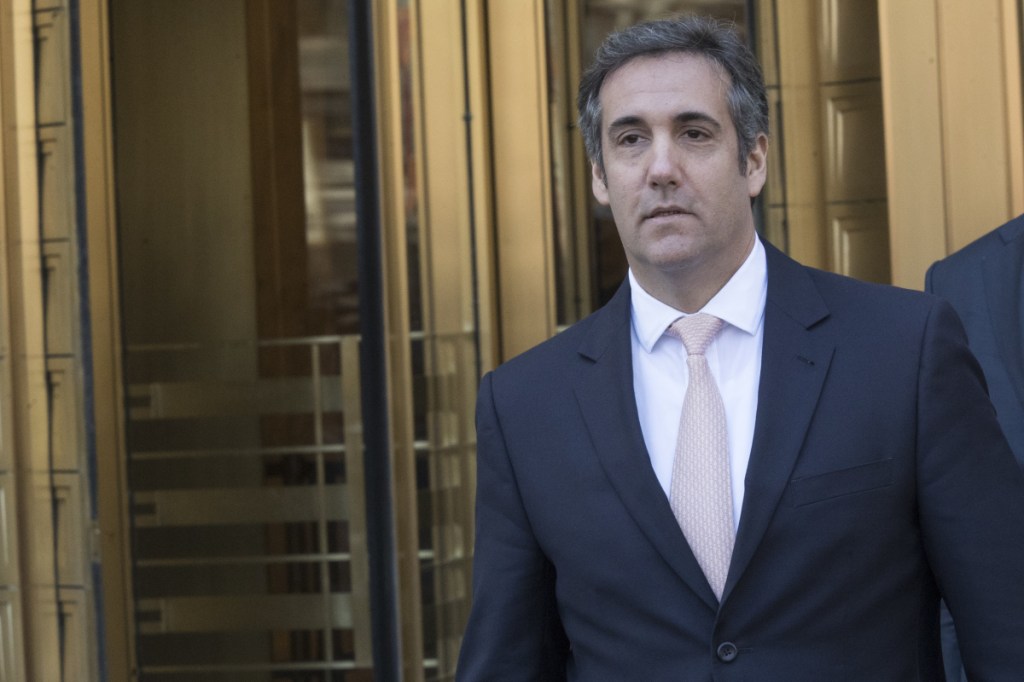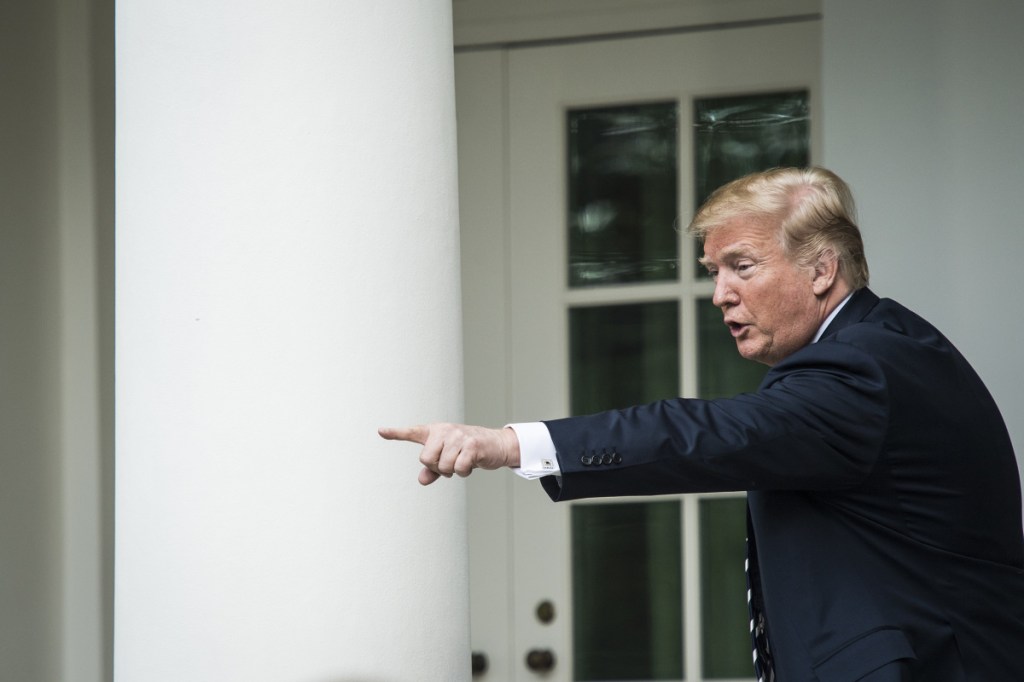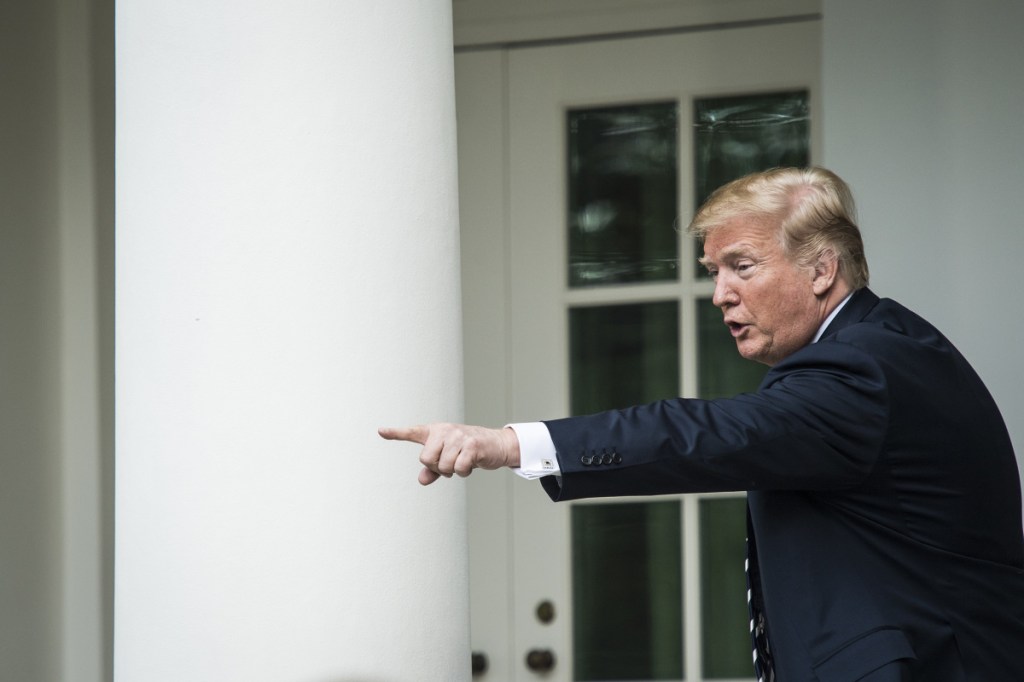During the presidential campaign, National Enquirer executives sent digital copies of the tabloid’s articles and cover images related to Donald Trump and his political opponents to Trump’s attorney Michael Cohen in advance of publication, according to three people with knowledge of the matter – an unusual practice that speaks to the close relationship between Trump and David Pecker, chief executive of American Media Inc., the Enquirer’s parent company.
Although the company strongly denies ever sharing such material before publication, these three individuals say the sharing of material continued after Trump took office.
“Since Trump’s become president and even before, (Pecker) openly just has been willing to turn the magazine and the cover over to the Trump machine,” said one of the people with knowledge of the practice.
During the campaign, “if it was a story specifically about Trump, then it was sent over to Michael, and as long as there were no objections from him, the story could be published,” this person said.
TABLOID OFFERED SUPPORT
The Enquirer’s alleged sharing of material pre-publication with Trump’s attorney during the campaign highlights the support the tabloid news outlet offered Trump as he ran for president. It also intersects with a subject that federal prosecutors have been investigating since earlier this year: Cohen’s efforts to quash negative stories about Trump during the campaign. As part of that, prosecutors are also looking into whether Cohen broke campaign finance laws, according to people familiar with the investigation.
Earlier this week, federal prosecutors subpoenaed American Media Inc. as part of their investigation into Cohen, according to the Wall Street Journal. A Justice Department official said Pecker did not fall under the regulation that governs when and how prosecutors can obtain records of members of the news media.
“American Media Inc., has, and will continue to, comply with any and all requests that do not jeopardize or violate its protected sources or materials pursuant to our First Amendment rights,” AMI spokesman Jon Hammond said.
Pecker declined to be interviewed for this story. Dylan Howard, the company’s chief content officer, called it “completely false” that Trump and Cohen “were told in advance, and copies were shared in advance, and that they had some sort of sway over who the magazine attacked on any given week.”
In an interview last week in AMI’s downtown Manhattan offices, Howard said that if stories were shared, “it was not at the behest of me or David. And quite frankly, if they were shared, I’m a little concerned because people are acting as rogues and renegades.”
“We made a very public endorsement of Trump,” he said. “So it wouldn’t be out of the ordinary for me to commission stories on his opponents given that we had endorsed Donald Trump. And that’s what I did,” Howard said. “I didn’t do that at the behest of candidate Trump or anyone associated with him. I did it because we were chasing good stories.”
Trump “has never been consulted on editorial decisions – or by himself or through intermediaries requested an article be written on a given subject or angled in a certain way,” Howard said. “We do not run or kill stories on the behest of politicians, even if they are the president of the United States.”
Cohen did not return calls or text-messaged requests for comment. The White House referred calls to Trump’s personal counsel, Rudy Giuliani, who did not respond to requests for comment.
CHANGES REQUESTED
Once Enquirer editors sent a story or cover image, sometimes a request for changes came back, according to two of the people with knowledge of the relationship. Stories about Trump were positive in nature, and changes related to the stories were not dramatic, according to one person with knowledge of the matter, who said most of the changes in stories sent to Cohen resulted in more flattering cover photos or changes to cover headlines.
Trump suggested stories to Pecker on a regular basis, one of these people said, and had access to certain pieces – including one about Hillary Clinton’s health – before publication.
NOT PREVIOUSLY REPORTED
These people spoke on the condition of anonymity because they feared legal action or professional retribution if they spoke publicly about Trump or AMI, which publishes other celebrity-focused titles including Us Weekly, the Globe and Star.
AMI’s alleged practice of sharing advance copies of articles with Trump and his intermediaries has not been previously reported. The relationship between Trump and Pecker dates back decades, but the communication between Trump, Cohen and Pecker’s publications ramped up during the presidential primaries and the general election in 2016.
Send questions/comments to the editors.





Success. Please wait for the page to reload. If the page does not reload within 5 seconds, please refresh the page.
Enter your email and password to access comments.
Hi, to comment on stories you must . This profile is in addition to your subscription and website login.
Already have a commenting profile? .
Invalid username/password.
Please check your email to confirm and complete your registration.
Only subscribers are eligible to post comments. Please subscribe or login first for digital access. Here’s why.
Use the form below to reset your password. When you've submitted your account email, we will send an email with a reset code.